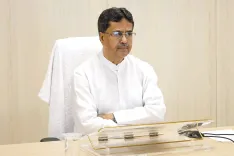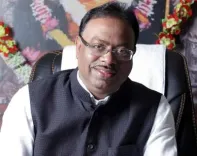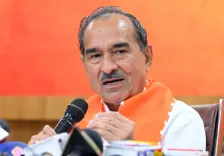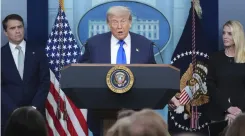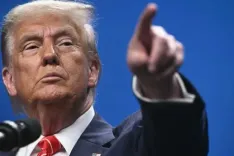Is Hydro Ganja a Major Challenge for the Government?
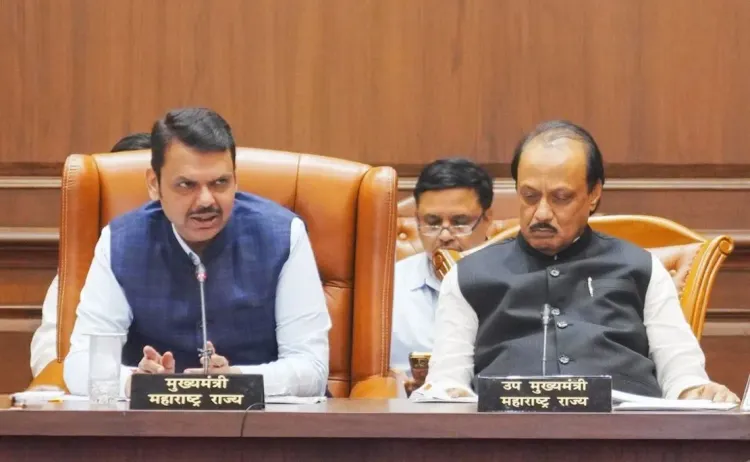
Synopsis
Key Takeaways
- Hydro ganja smuggling is on the rise due to legalization abroad.
- The Maharashtra government is revising laws to combat drug trafficking.
- Awareness campaigns are aimed at engaging communities, particularly youth.
- Close monitoring of postal services is being enforced to detect illegal shipments.
- Action will be taken against police personnel found involved in drug activities.
Mumbai, July 3 (NationPress) Maharashtra Chief Minister Devendra Fadnavis stated on Thursday that hydro ganja poses a significant challenge for the government. With its legalization in Thailand and America, the number of cases involving its shipment via parcel services has been on the rise.
He informed the state council that the government has proposed reducing the commercial quantity of drugs within regulations, which could result in longer imprisonment for drug peddlers.
“Hydro ganja is indeed a challenge. Since it is legal in Thailand and the US, it is being smuggled into our country through courier services and other channels,” he remarked, referencing the deportation of an alleged drug cartel operator, Naveen Jichkar, who purchased an island in Australia to facilitate the transport of hydroponic ganja from Thailand and the US.
“He was apprehended along with several accomplices from the postal and Customs departments, including two police officers who have since been dismissed,” he added.
In response to a motion in the legislative council, Fadnavis revealed that MD drugs worth Rs 4115.59 crore were seized in 2024, and by May 2025, MD drugs valued at Rs 138.90 crore had been confiscated.
He also expressed concerns regarding synthetic drugs, noting that even terminal cancer patients are being exploited as drug carriers.
“We are initiating a campaign to dismantle the drug infrastructure and promote the anti-drug movement by engaging school children,” he stated. The police are not only apprehending drug peddlers but have also mandated investigations into their networks.
“Even patients in the late stages of cancer are being used as carriers. We have encountered three cases where individuals were battling cancer,” he said.
Close surveillance on narcotics smuggled from abroad will be enforced. Additionally, personnel in the Anti-Narcotics Task Force will receive specialized training and assured future promotions, as stated by the Chief Minister.
“Severe measures will be taken against individuals who involve minors in drug trafficking. Awareness campaigns will be launched through OTT platforms to counter the 'glorification' of narcotics, and all postal and courier companies have been instructed to scrutinize parcels. Joint task forces will also monitor social media and the dark web, with strict actions against drug peddlers, including coordinated crackdowns and prosecutions,” he added.
The Chief Minister has directed the Food and Drug Administration and the Pollution Control Board to establish regulations for companies whose waste could potentially be repurposed for producing narcotic substances.
“Any police officer found involved in drug-related activities, directly or indirectly, will face immediate termination under Section 311,” he stated.
He pointed out that ports in Gujarat and the Jawaharlal Nehru Port Trust (JNPT) in Maharashtra have been identified as entry points for drugs concealed within cargo shipments, and drug detection scanners have been installed in both regions.
“We are conducting randomized checks on shipments from specific countries known for drug trafficking,” he said, adding that the increased number of cases is a result of intensified police actions.
Just five days ago, two Indonesian nationals were apprehended with 21 kg of hydroponic ganja valued at Rs 21.55 crore in Mumbai, he revealed.
Fadnavis reiterated that since drug peddlers often secure bail and resume illegal activities, the state government is revising laws to prosecute them under the stringent Maharashtra Control of Organised Crime Act.


